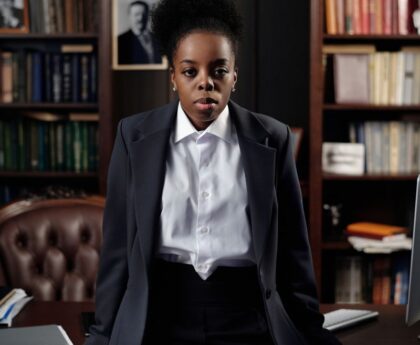Perspective: The Truth Behind Michael Oher’s Claims
Adoption vs. Conservatorship: Unraveling the Story
Michael Oher, the former NFL player and subject of the book and movie “The Blind Side,” has recently made allegations that the story at the heart of the popular narrative was a lie. The 2009 film, based on Michael Lewis’ book, portrays Oher’s journey from abject poverty to NFL success after being adopted by the Tuohy family, who are White. However, Oher claims that he was never adopted, but instead deceived into making the Tuohys his conservators just after turning 18. In court documents filed in Tennessee, Oher asserts that the Tuohys exploited their conservatorship status to make millions from deals related to Oher’s story, while excluding him from any financial gains.
The distinction between adoption and conservatorship is crucial to understanding Oher’s claims. If he had been adopted, he would have been a legally recognized member of the Tuohy family with control over his financial matters. However, as a ward under conservatorship, Oher relinquished control of his finances to the Tuohys. Oher’s petition argues that the Tuohys misled him by claiming that conservatorship was equivalent to adoption, leaving him without the familial relationship he believed to have.
Seeking Truth and Justice
Oher’s lawsuit seeks to expose the truth behind his relationship with the Tuohy family and put an end to their conservatorship. He also aims to prevent the family from using his name and image to promote their work, while seeking financial compensation for the royalties that he claims were rightfully his. Oher asserts that the story depicted in “The Blind Side” would not have existed without him, and therefore, any financial gains made from it should be rightfully disgorged and paid to him.
It is important to note that the Tuohys have yet to comment on the allegations made by Oher. However, they have consistently referred to him as their son and continue to tell the story of his journey in their public appearances. The Tuohys’ portrayal of themselves as Oher’s adoptive family has been central to their motivational speaking engagements and even garnered an Oscar-winning performance by Sandra Bullock, who played Leigh Anne Tuohy in the film.
The Impact of “The Blind Side” and Racial Stereotypes
While “The Blind Side” was a commercial success, it faced criticism for perpetuating negative racial stereotypes and being a “white savior” narrative. The film depicts Oher as a Black individual in need of rescue and portrays the Tuohys as his saviors. This representation has been deemed problematic by many critics, including The Guardian’s Peter Bradshaw, who described it as a “bland, parochial, and stereotypically acted” portrayal of reality.
Oher himself has expressed frustration with how the movie affected his NFL career, claiming that it depicted him as unintelligent and led people to underestimate his skills as a player. The impact of this misrepresentation on his professional trajectory has been a source of deep disappointment for Oher.
Editorial: The Importance of Truth, Representation, and Justice
A Complex Narrative
The revelations made by Michael Oher regarding the truth behind his adoption claim in “The Blind Side” raise important questions about the ethics of storytelling and the representation of real-life events. The complex nature of Oher’s relationship with the Tuohys challenges the simplistic narrative presented in the film, forcing us to confront the inherent biases and stereotypes embedded within it.
Telling Authentically and Responsibly
The case of Oher serves as a reminder of the responsibility storytellers have to present truthfully and responsibly. While adaptations of real events often require some degree of artistic license, it is crucial to tread carefully when portraying the experiences of marginalized individuals. By doing so, we avoid perpetuating harmful stereotypes and ensure that the stories we tell are authentic and respectful to those involved.
The Impact on Individuals’ Lives
Oher’s claims also highlight the profound impact that misrepresentations can have on individuals’ lives. The public perception shaped by “The Blind Side” had real consequences for Oher’s NFL career. Underestimation, prejudice, and the burden of stereotypes are not mere abstractions; they can have tangible, long-lasting effects on individuals and their opportunities.
Promoting Justice and Accountability
Oher’s pursuit of justice and accountability in his case against the Tuohys should not be taken lightly. If his claims prove to be true, it is important that he receives the financial compensation that he believes he is owed. Additionally, the elements of misrepresentation and exploitation surrounding his story must be addressed to ensure that similar situations are prevented in the future.
Advice: A Call for Ethical Storytelling
Authentic Representation Matters
The case of Michael Oher and “The Blind Side” underscores the significance of authentic representation in storytelling. When sharing the stories of marginalized individuals, it is crucial to prioritize their experiences, perspectives, and agency. By doing so, we promote inclusivity and challenge the perpetuation of harmful stereotypes.
Research and Fact-checking
Storytellers must take responsibility for diligent research and fact-checking, particularly when retelling real-life narratives. This ensures the accuracy and integrity of the stories we tell, and helps avoid misrepresentations that can have far-reaching consequences.
Empathy and Empowerment
Empathy and empowerment should guide our storytelling efforts. By amplifying the voices of those whose stories we seek to tell, we move away from a position of saviorism and towards a more equitable representation. Authenticity, dignity, and respect should underpin our endeavors.
Accountability and Restitution
When errors or misrepresentations occur, accountability and restitution are necessary. In cases where individuals have been exploited or misrepresented, it is crucial to rectify the situation and provide appropriate compensation, acknowledging the harm caused.
The Way Forward: Truth and Justice
The revelations made by Michael Oher regarding the truth behind “The Blind Side” provide an opportunity for reflection, growth, and change. As storytellers and consumers of media, we must critically engage with the narratives presented to us, interrogate their authenticity, and demand ethical storytelling practices.
In seeking justice for Oher, we address the larger issues of representation, racial stereotypes, and the exploitation of individuals’ stories. By doing so, we take a step towards a more equitable and just society, where all individuals, regardless of their race, background, or circumstances, are seen and heard.

<< photo by Fernanda Latronico >>
The image is for illustrative purposes only and does not depict the actual situation.




